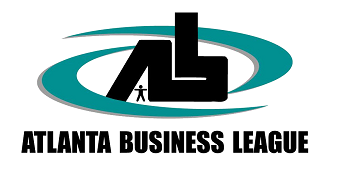Terms Related To Personal Loan That You Should Know
An individual can avail various forms of credit or loan for different purposes. Like for buying a house, you can avail a home loan, to buy a car you can avail the car loan, for meeting education expenses you can claim education loan, etc. However, a personal loan is one such loan which can be availed for any purpose whatsoever, you can use the borrowings for any emergency, or to meet marriage expenses, to meet travel costs, to meet education or coaching expenses, to buy a new gadget, etc. Learn about how we can use personal loan for debt consolidation and other uses.
The personal loan is a multi-purpose loan for which you do not require any collateral to avail. However, since it is unsecured, the rate of interest on it is slightly higher as compared to other loans.
Before you apply for any loan, it is always better to know as much as you can about it so that you can make a rational decision. Here are some important terms about the personal loan that you should know:
-
Processing Fee: Most banks charge around 1-2% of the loan amount, which is deducted automatically when the loan amount is disbursed. Lower the fee, the better it is.
-
Credit Score: Your credit score is one of the most crucial aspects when it comes to a personal loan. The banks and financial institutions decide on the basis of credit score whether to look at other aspects of your application or not. It means you must have at least the score of 650 to stand any chance of getting your application accepted. If it is 700 or more, then even better.
-
Interest: It is the charge of the lender for allowing you to use the money. Your EMI will constitute both the interest portion as well as the principal portion. Since it is an unsecured loan, that’s why the rate of interest is slightly higher.
-
Prepayment Fee: It is the fee charged by the lender from you when you repay more than the EMI amount or a considerable amount before the end of tenure. The fee is charged as compensation for the loss of potential interest the bank would have received if you did not make the prepayment.
-
Pre-closure: This is an extension of prepayment, in which instead of making a part payment you make full repayment and seek to close the loan before the tenure.
-
Eligibility: Each bank and financial institution has set certain criteria below which they will not provide a personal loan. Every application received is assessed against these criteria, and the application is passed only when it passes all the criteria.
Thus, you must have a regular income source. Minimum 2 years of working experience, a credit score of 700 or more and a bank account.
-
Debt Consolidation: When you have many debts outstanding, then keeping track of each due date and making timely payments becomes a headache. In such a situation, you can always avail a personal loan for debt consolidation to pay off your debts and have one debt instead of many. This process is called debt consolidation.
-
Late Payment Fee: In case you miss to pay your EMI on time, then the lender will charge a fee or penalty for making late payment which is termed as late payment fee.
Keep these terms in your mind while you do in-depth research about various offers of the banks and decide which one will suit you the most.
Summary
Personal loan in today’s time is quite a popular loan type. Thus, it becomes essential that you know as much as possible about it so that when you think about applying for it, then you have the necessary information available to choose the best offer.
Here are some important terms related to a personal loan that you should know:
-
A credit score is the reflection of an individual’s creditworthiness. Since a personal loan is an unsecured loan type, the importance of credit score is much higher as compared to other loans. You should have at least a score 675 to stand a chance to get your application accepted.
-
Eligibility criteria of a personal loan vary to some degree from bank to bank. Therefore you must ensure that you are satisfying at least the minimum criteria before you go-in depth to a particular bank’s eligibility criteria.
-
In case you miss to pay your EMI on the due date, then the bank levies a penalty for a late payment known as a late fee.
-
Prepayment Fee is charged by the bank as a penalty for the loss of possible interest it could have received if you hadn’t made a part payment of your loan.
-
The processing fee is the fee charged by the lenders to cover the expenses from assessing your application to disbursing the amount.
-
Interest is the charge or payment or costs you pay to the lender for letting you use their money.



